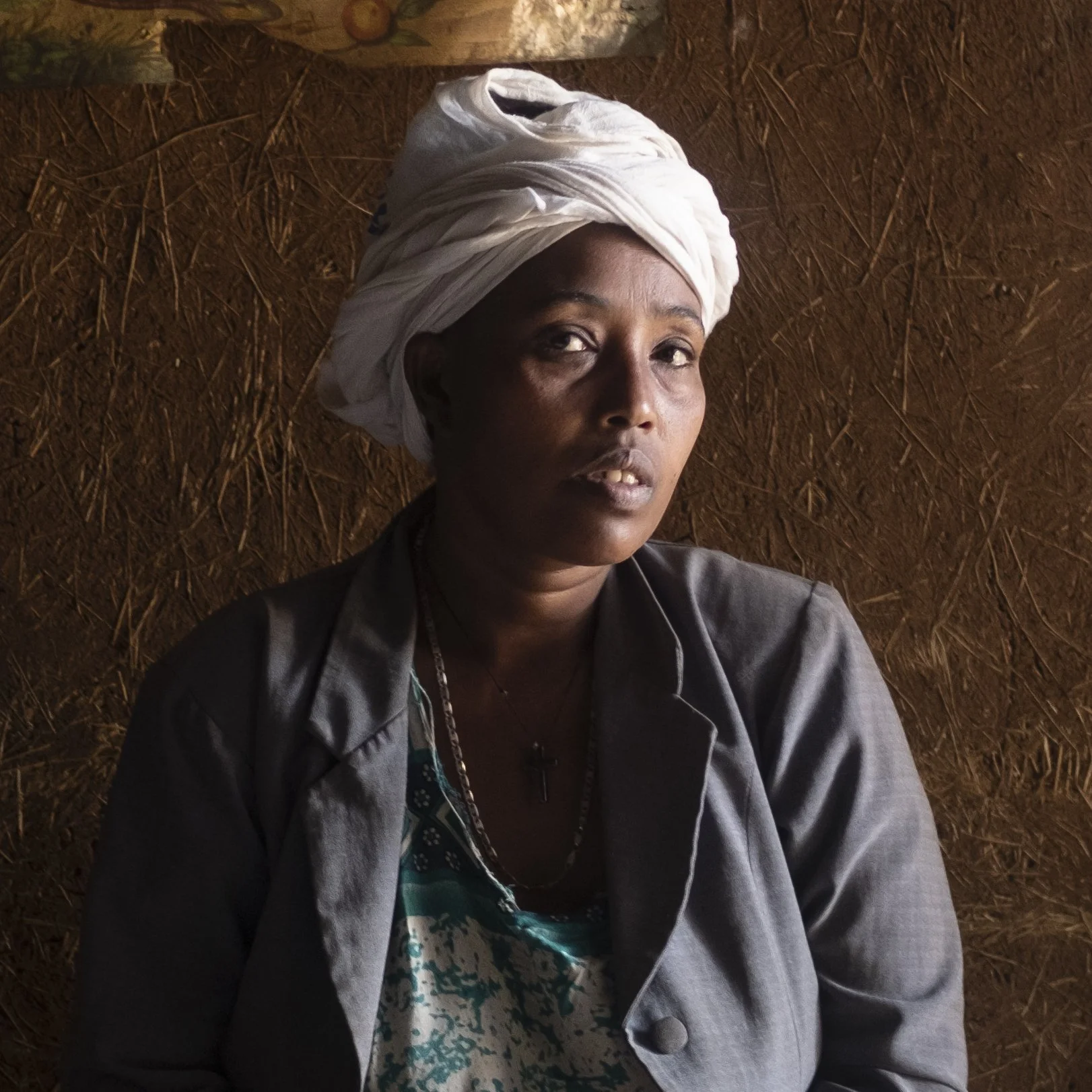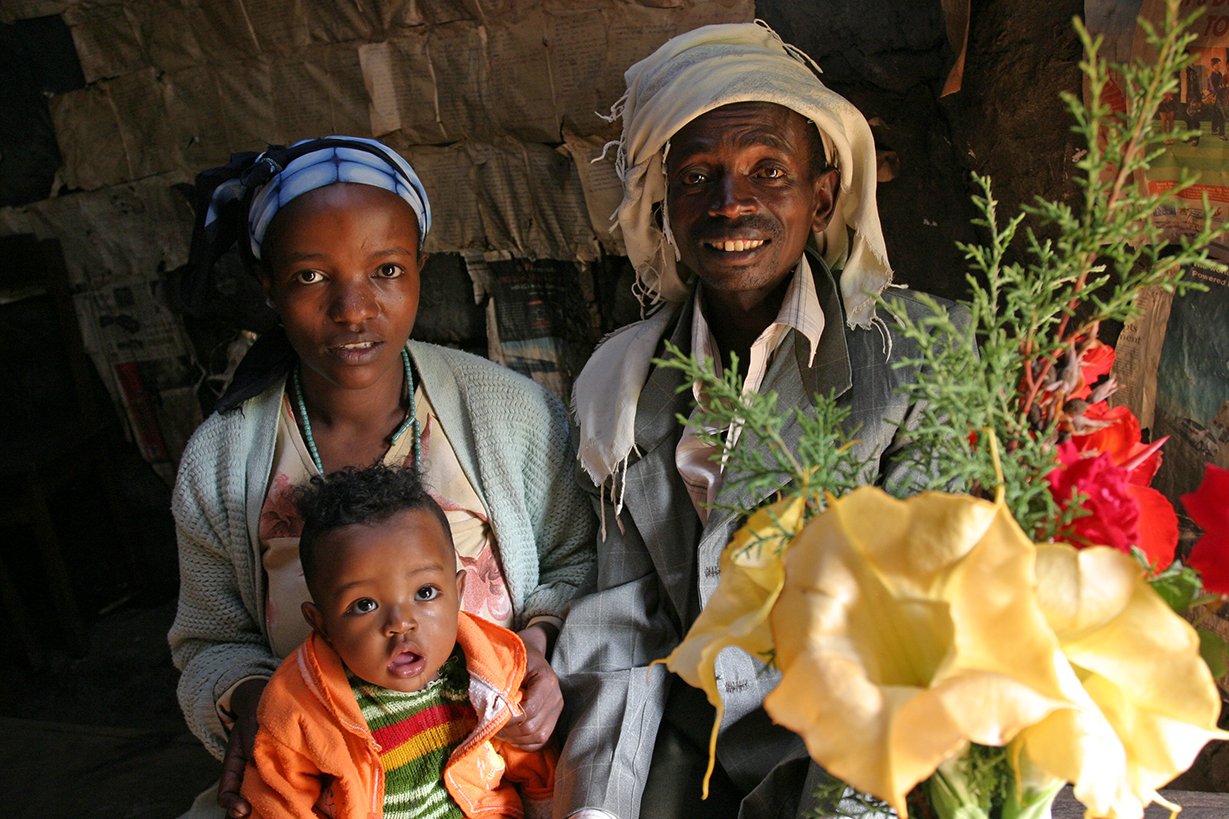
THE FAITHFUL HOUSE
The Faithful House is a well-established and successful program of marriage formation and renewal that improves the health and well-being of couples and families, including improving food security, parenting, communication, respect for women, and reducing domestic violence, alcoholism and infidelity.
The Faithful House - Eveline and Jude - Part 1
The Faithful House - Eveline and Jude - Part 2
The Faithful House - Eveline and Jude - Part 3
The importance of relational health is exemplified by The Faithful House. The Faithful House was developed by Maternal Life International and Catholic Relief Services in 2005 as an HIV prevention program. It was targeted towards married couples where nearly 50% of new HIV infections were occurring.
During TFH workshops, couples are led by trained facilitators to examine key areas in their relationship: the foundation of their marriage in God, the four pillars of love, respect, faithfulness and communication, walls representing their values, windows of light and forgiveness and so on.
They examine together where their house is strong and well-constructed and where it may be broken, from attitudes and behaviors such as disrespect, selfishness, infidelity, alcoholism and domestic violence. After each session, couples discuss in private the topic and apply it to their own life, including how to repair the broken places in their “marriage house.”
As a couple comes together and heals their marriage, they are much more likely to be faithful and avoid AIDS, they are less vulnerable to food insecurity, and they are more likely to emerge out of poverty.
The message spreads: neighbors see the transformation that takes place. They see the husband helping his wife cook and clean, they see the couple which previously was fighting, walking together, and smiling, they see both father and mother helping each other with the children.
The Faithful House changes the “culture of relationships”.
Women are treated as equals, household tasks and parenting become shared between husband and wife, formerly taboo subjects such as sex and money are now discussed.
OPERATIONAL RESEARCH HAS DEMONSTRATED THE POSITIVE IMPACT OF THE FAITHFUL HOUSE
GENDER NORMS
Before TFH training, 63% of participants said the wife was responsible for household tasks. Afterward, 94% said both were responsible.
Before TFH training, 12% of participants said that both husband and wife were responsible for deciding whether to have sexual relations. Afterward, 94% said both were responsible.
FAITHFULNESS
Following TFH training, the percentage of participants stating that they had the skills to remain faithful in marriage increased from 78% to 99%.
At 6 months, infidelity dropped five-fold in the TFH group while nearly doubling in a control group.
DOMESTIC VIOLENCE
Domestic Violence dropped from 61% to 36%
PARENTING
After TFH training the ability for parents to talk with their children about sex increased from 16% to 91%.
The ability to openly discuss family finances increased from 31% to 96%
TFH has demonstrated that nearly every dimension of a family’s health – from food security to maternal health – is improved when husbands and male partners are involved and supportive.
Studies show that if the husband or male partner accompanies a woman in labor to the hospital she is more likely to receive timely and respect-based obstetrical care. Couple-centered development and the health and security of marriage also has profound benefits for children.
A recent review of the medical and sociological literature summarized this “couple benefit” as follows:
“Compared to children continuously living with two married parents who are the biological parents, children in other family arrangements such as single parenthood or lack of married parents consistently experience lower emotional well-being, physical health and academic achievement.”[1]
In Uganda, Tanzania, Kenya and Rwanda, Maternal Life affiliates and their facilitator couples have collaborated and networked with bishops, priest, religious sisters, lay ministers, and catechists. As well, in several countries, TFH has been adapted for use by other religious groups, including Muslims.
[1] Sullins, D. Paul, The Case for Mom and Dad, The Linacre Quarterly, Volume 88, Number 2, May 2021, 184-201.
HELP US BUILD SECURE FAMILIES
*If you would like to learn more about The Faithful House, and receive a copy of our training manual, please contact MLI at maternallifeinfo@gmail.com












